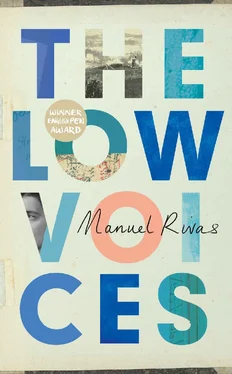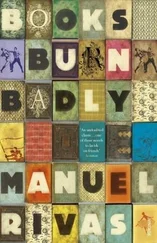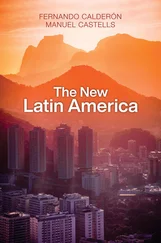Manuel Rivas - The Low Voices
Здесь есть возможность читать онлайн «Manuel Rivas - The Low Voices» весь текст электронной книги совершенно бесплатно (целиком полную версию без сокращений). В некоторых случаях можно слушать аудио, скачать через торрент в формате fb2 и присутствует краткое содержание. Год выпуска: 2016, Издательство: Harvill Secker, Жанр: Современная проза, на английском языке. Описание произведения, (предисловие) а так же отзывы посетителей доступны на портале библиотеки ЛибКат.
- Название:The Low Voices
- Автор:
- Издательство:Harvill Secker
- Жанр:
- Год:2016
- ISBN:нет данных
- Рейтинг книги:5 / 5. Голосов: 1
-
Избранное:Добавить в избранное
- Отзывы:
-
Ваша оценка:
- 100
- 1
- 2
- 3
- 4
- 5
The Low Voices: краткое содержание, описание и аннотация
Предлагаем к чтению аннотацию, описание, краткое содержание или предисловие (зависит от того, что написал сам автор книги «The Low Voices»). Если вы не нашли необходимую информацию о книге — напишите в комментариях, мы постараемся отыскать её.
A brilliant coming-of-age novel from one of Spain’s greatest storytellers,
is a humorous and philosophical take on memory, belonging, and the nature of storytelling itself.
The Low Voices — читать онлайн бесплатно полную книгу (весь текст) целиком
Ниже представлен текст книги, разбитый по страницам. Система сохранения места последней прочитанной страницы, позволяет с удобством читать онлайн бесплатно книгу «The Low Voices», без необходимости каждый раз заново искать на чём Вы остановились. Поставьте закладку, и сможете в любой момент перейти на страницу, на которой закончили чтение.
Интервал:
Закладка:
‘You fools!’ said our mother. ‘It was only two carnival giants. Isabella and Ferdinand, the Catholic Monarchs.’
2. Sitting on the Emigrant’s Suitcase
FOR A YEAR, my seat at the strange nursery was a suitcase. I felt as if I were sitting inside the ferry terminal or in customs.
After our first fear, the attack of the giants, our mother decided my sister María and I shouldn’t spend so much time on our own while she did her rounds as a milkmaid. Sometimes my godmother, Amelia, would look after us. My godfather, Pepe Couceiro, was a fan of mechanics and scientific progress. For a time, he focused all his ingenuity on combustion engines. He could build a two-seater car out of a motorbike. His intention was to travel the Galician roads inside that capsule and even go beyond the Pyrenees, to Europe. He had an enigmatic expression: in advanced countries, ‘all the countryside is landscape’. And he would gaze at the horizon nearby with scientific fatalism, sorry that not even an inch of Galicia would ever be redeemed. He had a spirit like Marco Polo’s. So much so that he ended up working as a seller of spices, an expert in that precious, aromatic merchandise. The first time I had the impression someone was formulating a revolutionary thought, toppling the universal system of weights and measures, was when my godfather revealed a little pigment on the end of his forefinger, stared at me and solemnly declared, ‘A kilo of saffron is worth more than a kilo of gold!’
One day, he took me on one of his expeditions as a spice merchant. I remember it as the first real journey of my life.
‘To the end of the world!’ he exclaimed enthusiastically.
I had a certain tendency to take things literally. I was prepared to go to the end of the world, but was also a little worried. Until he patted me on the head: ‘You’ll see. We’ll get to Finisterre!’ And we did. The journey lasted all day, like the sun, from dawn to dusk. Along the Costa da Morte, or Death Coast, towards the outer reaches. The two of us stuck in the capsule of a small car, on this occasion a SEAT 600. As we stopped off at shops, grocers and restaurants, my godfather, quite a short man, grew for me in historic stature. I felt proud to be accompanying the spice trader. Paprika, cinnamon, saffron! We were very well received, heralds of plenty, bearers of precious merchandise: tiny envelopes containing fragments of colours, aromas, tastes, which would scatter when they were opened. Or tins of pepper, illustrated with prints of exotic women that accorded with the nature of the treasure. I’d seen women — my own mother, neighbours — filling these envelopes and folding them in a flash, with dazzling speed, and at that precise moment the women looked like the beauties in the prints because they accompanied their labour, the swiftness of their fingers, with the lightness of jokes and laughter. I’d noticed a difference between women and men when they were working in a group. Men were much more taciturn.
On the way back, in the town of Carballo, my godfather announced, ‘Now we’re going to buy a souvenir !’ What was this souvenir ? And he added with happy determination, ‘So you can take it to your mother.’ When someone said ‘to your mother’, it almost always meant a present for the whole house, for everybody. We learned this quickly enough. And what he bought was a large loaf of bread the child in question couldn’t get his arms around. A soft, hemispherical loaf that on the journey home seemed to ferment on the lap of the sleeping child’s body.
‘What bread! It’s like another world!’
It was bread, yes. But it was also something other than bread. What a shame! I’d forgotten the word. Souvenir . My first souvenir .
There was other secret knowledge. The initiatory ground, the first nation, had the form of a triangle, if we consider three monumental markers as vertices. The first was the seaside cemetery of Santo Amaro. Regarding this place, I remember a neighbour, in conversation with my father, praising the cemetery in the highest possible terms: ‘This cemetery is the healthiest in the world!’ And he explained its qualities: well oriented, luminous and breezy. The second vertex, very close to our home on Marola Street, was the provincial prison. Not so healthy. Back then, at dusk, from up on the cliffs, one could see the prisoners in the courtyard. From time to time, there would be a snatch of song. It was a windy place, next to the sea, which was almost always rough. In fact, the wind and the beating of the waves integrated every murmur, shout or voice into a stubborn, musical warp. The only thing that escaped was the intermittent sound of a stonemason who had his workshop in a hut. The mallet beating the chisel he used to sculpt granite, crosses, gravestones, dominated with its handmade time like a bitter clock. When the stonemason finished for the day, silence would fall to its knees, as if this was what the chisel had been working on. Some days, relatives would clamber up the cliffs and communicate with the prisoners using coloured handkerchiefs in a code of signals. ‘Look, there he is, so near!’ So far. From that unsettling lookout, everything seemed at hand and inaccessible. A greeting at a distance of several yards, but years away. It was necessary to find hope. To turn around. To search for the third vertex. And there it was!
The lighthouse.
It was the light of a living creature. A light that awoke, lived at night and slumbered at daybreak. When there was a thick fog, it was this same creature that mooed like a cow. It wasn’t a sudden, blinding glare. It gradually stretched, fed its flashes with the last embers of dusk, at that hour when everything becomes a stranger to itself. The Tower of Hercules gave off light, and at the same time you had the sensation it was gathering the dark side of everything it licked. Of what was happening on the cliffs, in crevices, on corners. ‘What corner will we see each other on, Monte Alto?’ Monte Alto was a district full of corners where many names of bars, shops, workshops evoked the corners of the map of America. It was easy in that place to go from Montevideo to Buenos Aires. The light of the lighthouse licked and gathered everything. Shadows, dreams, secrets. It may still have them. Under the lighthouse, in an ossuary of light. The flashes, luminous blades, ran over the tiles, filtered through the slats in the blinds, momentary bursts that scythed the rooftops but left the darkness even darker than before. The lantern of the lighthouse sewed what was outside onto what was inside: wakefulness and sleep. The unending sea and the walls of narrow rooms.
But now we’re on our way to the first school. The strange nursery.
We weren’t old enough to go to school in an official centre, and ‘children’s gardens’ didn’t exist then, even as a euphemism. There was no sense of drama the first day. María and I quickly understood that our whole physical and emotional energy should be directed not at the useless effort of resisting, but at the will to clear a way and find somewhere to sit as soon as possible. That first little school, in a private home, was on a parallel street in Monte Alto and was run by two sisters who acted as nursemaids, sentinels and mistresses. It was enough for them to keep track of numbers. The children in that concentration room were like grains of sand. But something extraordinary happened: the expansion of space, one of the least studied features in the history of popular architecture. Marcial Suárez has already said that Allariz is the place in the world with the most churches per square Catholic.
For almost a year in the strange nursery, I sat on a suitcase. I don’t know whether it was a question of fate or not, but it really was a suitcase. Not the metaphor of a suitcase. The first day, amid all the uproar, I looked at the suitcase and the suitcase looked at me, the causality that took the form of a woman’s divine voice saying, while pushing me with implacable delicacy, ‘You, shrimp, sit down on that suitcase.’ Before one had learned how to read or write, one already understood the iconography of the suitcase. Almost all houses had one or several of these suitcases. Now that I think about it, the suitcase’s measure was just about that of a square child. But I never looked to see what was inside the suitcase in the strange nursery. What I held, and never let go, was a fuchsia, almost fluorescent plastic briefcase. Nobody ever asked me to open it. So one day I did it myself. Pulled on the zip. There was nothing there.
Читать дальшеИнтервал:
Закладка:
Похожие книги на «The Low Voices»
Представляем Вашему вниманию похожие книги на «The Low Voices» списком для выбора. Мы отобрали схожую по названию и смыслу литературу в надежде предоставить читателям больше вариантов отыскать новые, интересные, ещё непрочитанные произведения.
Обсуждение, отзывы о книге «The Low Voices» и просто собственные мнения читателей. Оставьте ваши комментарии, напишите, что Вы думаете о произведении, его смысле или главных героях. Укажите что конкретно понравилось, а что нет, и почему Вы так считаете.












